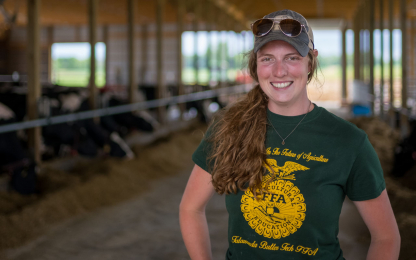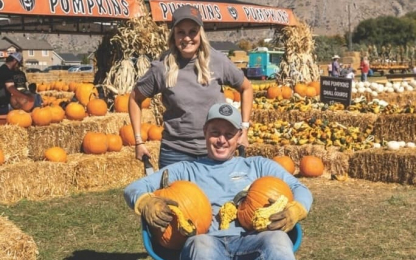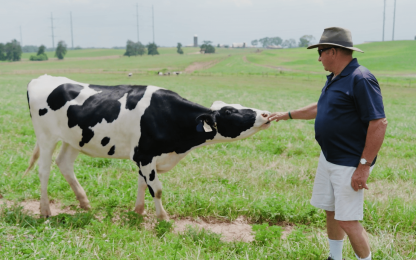In 1985, Bill and Karla S. Chambers started Stahlbush Island Farms with two crops, a piece of land and a passion for good food.
Today, Stahlbush Island Farms sprawls across nearly 5,000 acres in Oregon’s Willamette Valley. Despite that impressive growth, Bill and Karla have held fast to their core values. For more than 30 years, they’ve never wavered from the farm’s mission of producing safe, high-quality food.
Diversified production
Bill and Karla’s main farm has a food-processing facility that produces individually quick-frozen fruits, vegetables, legumes and grains, as well as custom purees in bulk. Over the years and changes to their business, the Chambers have stayed close to operations. They manage the business everyday, including oversight of three national retail lines: Stahlbush Island Farms frozen fruits and vegetables, Farmer’s Market Foods gourmet canned purees and Nummy Tum Tum pet food supplements.
Since that day back in 1985, Bill and Karla have instilled the same strong values of resilience, innovation, patience and determination, as well as unmatched dedication to preserving their land to their children, who will take over the farm one day.
Cultivating a farm for the future
Sustainability is an important tenant at Stahlbush Island Farms. With each growing season, Bill and Karla use conservation tillage to reduce erosion. They also plant cover crops to return nitrogen to the soil and build organic matter.
When it comes to water conservation, the Chambers continue to improve their irrigation, using weather, soil moisture and evapotranspiration data to track water use and needs. They have implemented systems that allow them to access real-time data that automatically controls and schedules irrigation based on the needs of each plant.
Social responsibility and employee well-being are also part of Bill and Karla’s definition of sustainability. They have programs and benefits in place for their employees to ensure job satisfaction and fulfillment. And they also donate one million servings of food to local food banks every year in support of their local community.
In-house energy production
One particularly innovative way that Karla and Bill address the question of sustainability on the farm is by generating electricity from their fruit and vegetable by-products. Leftover items like corn husks and cobs turn into biogas, which them generates electricity. That powers the processing plant and generates steam that they use in their boilers, hot water for sanitation and hot air to dry their pumpkin seeds. The leftover material from this process leaves behind water for irrigation and a rich fertilizer that they spread back into the fields to nurture the next year’s crops.
Between 2009 and 2019, the biogas plant converted 295,163 tons of agricultural byproduct. Curiously, spinach is the crop that generates the most electricity, 1,650 kWh per ton.
“There is no such thing as waste, only underutilized resources,” Bill said.
A strong partner
There is never a dull moment at Stahlbush Island Farms, and the Chambers depend on having a consistent and reliable lender to support their many endeavors. That’s where AgWest Farm Credit comes in.
“Farm Credit is such a great partner because they provide the capital we need to grow the business,” Karla said. “They understand agriculture, food processing and vertical integration. Having a reliable banking relationship with extensive knowledge about the agricultural sector is invaluable.”


